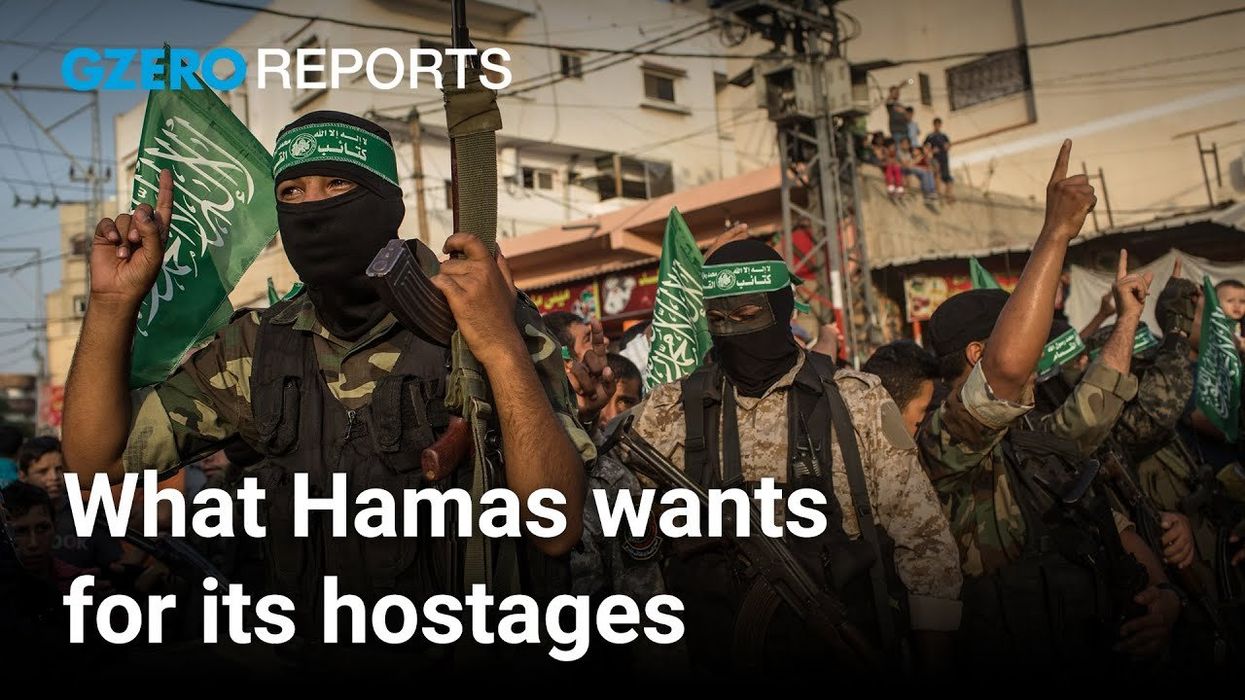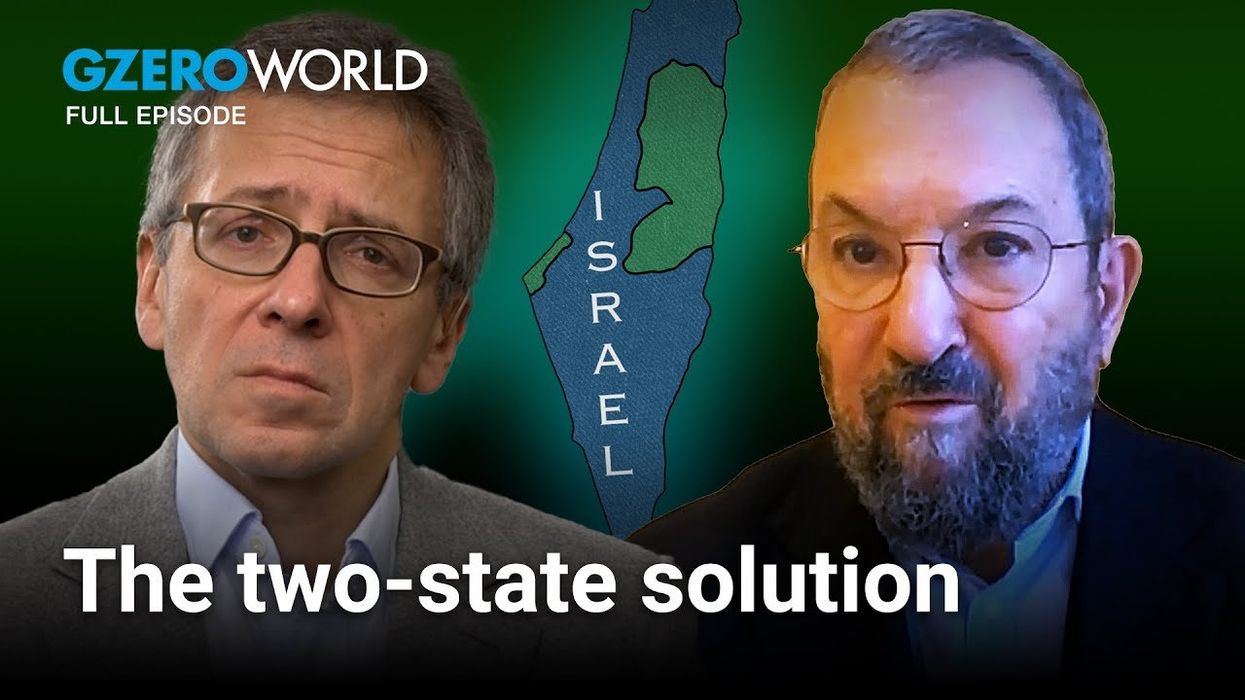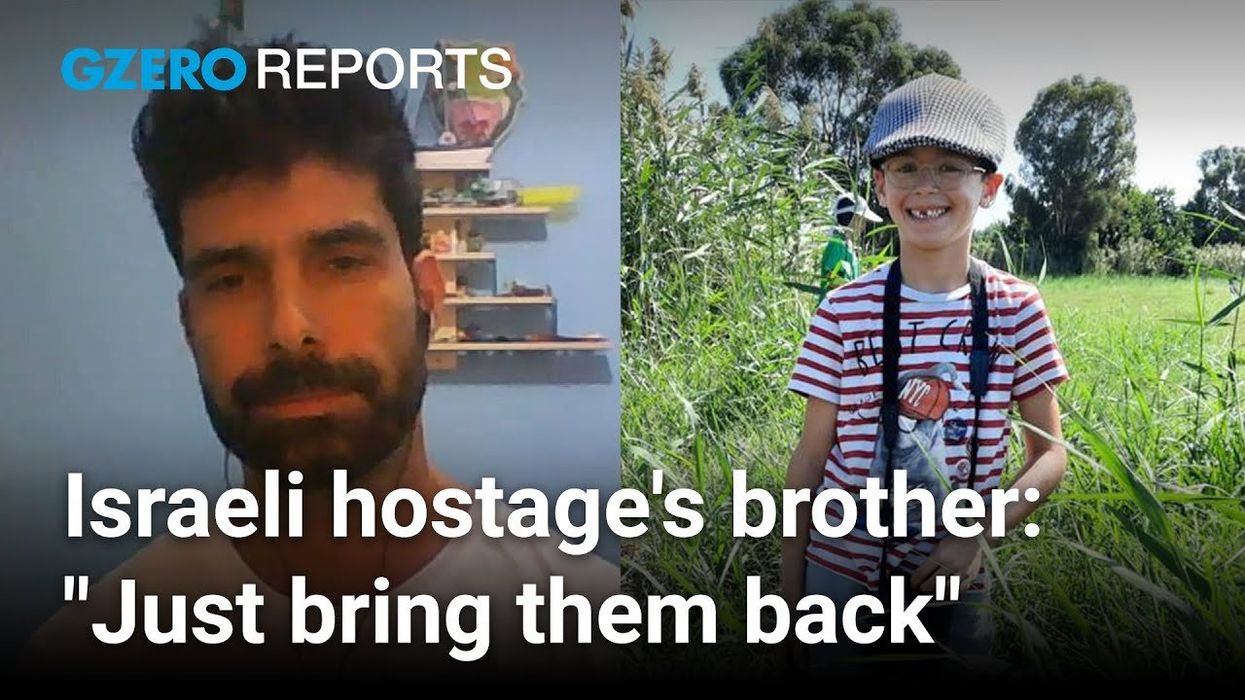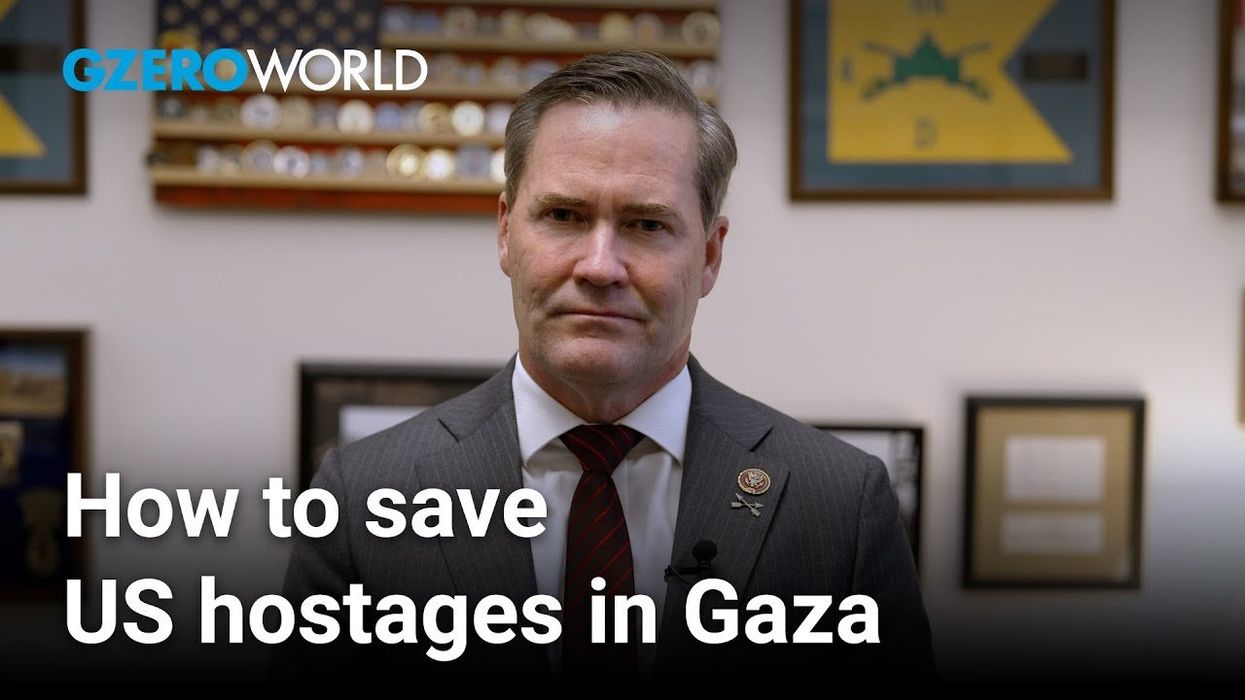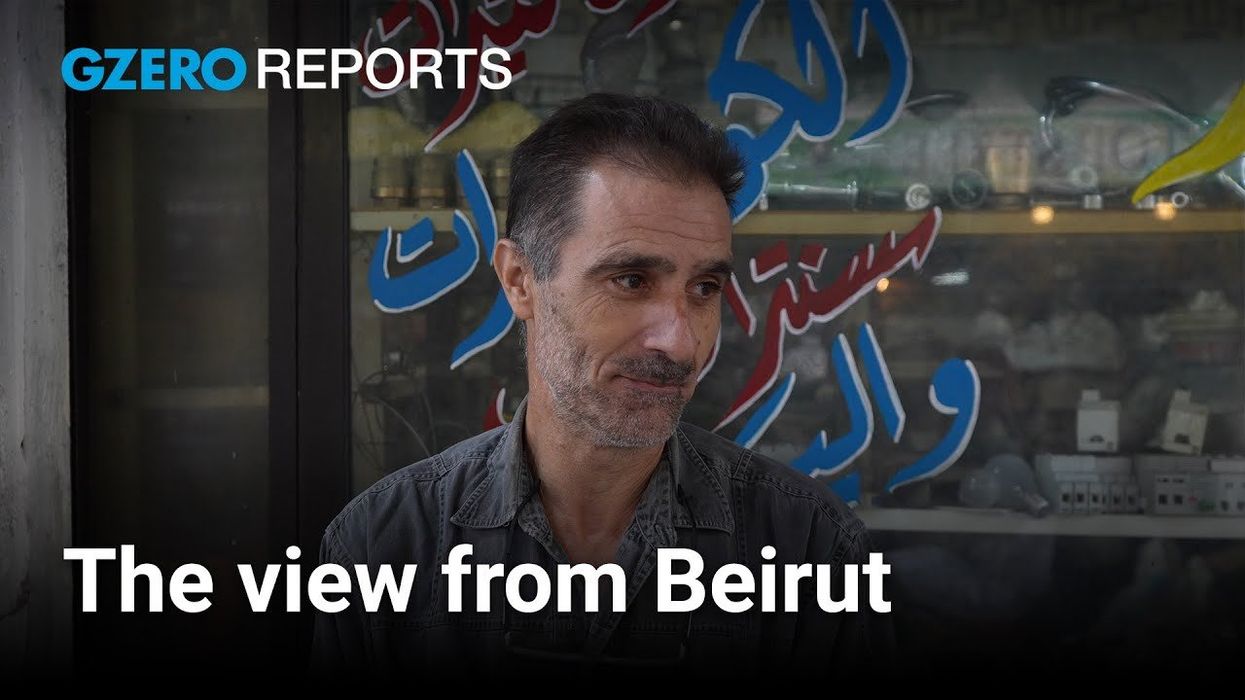GZERO World Clips
Dealing with Hamas: What a former hostage negotiator learned
What's it like to negotiate directly with Hamas? On GZERO World with Ian Bremmer, Alex Kliment asks Gershon Baskin, a hostage negotiator who's dealt directly with Hamas, about the 240 estimated Israeli hostages being held captive in Gaza.
Nov 18, 2023
